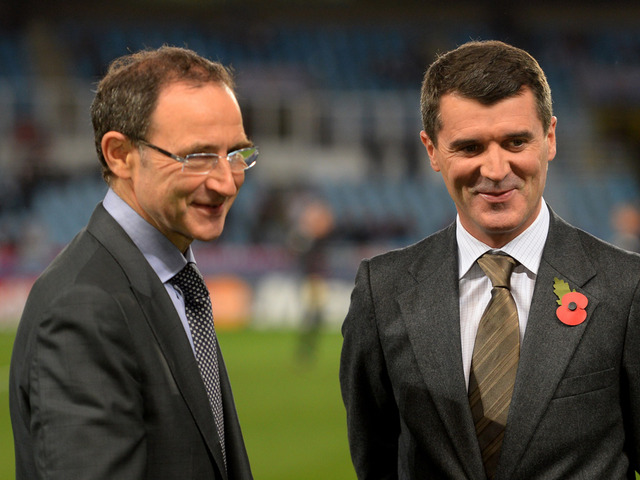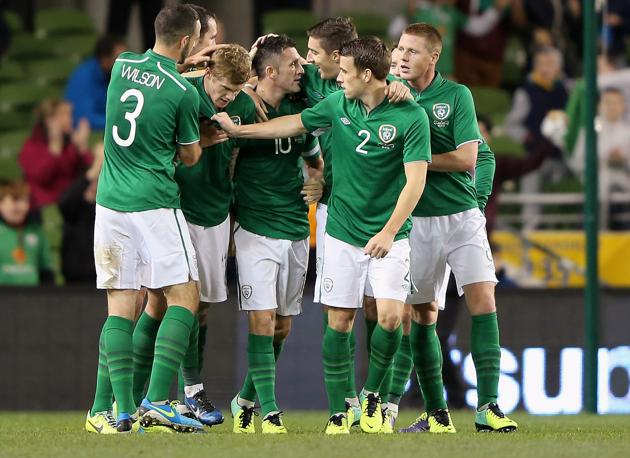Carl Kinsella | Senior Staff Writer
In hiring Martin O’Neill as manager, FAI Chief Executive John Delaney at long last embraced a sanity that’s been sorely lacking since the sacking of Mick McCarthy. O’Neill has been touted as a viable option for the hot-seat since Mick’s dismissal eleven years ago. To get to this point we’ve endured the FAI’s thrusting of the novice Steve Staunton into the spotlight before quickly scrapping him in favour of Trapattoni. The aging pragmatist had little interest in Irish football or Irish footballers and stuck the players he liked wherever he liked them regardless of club form or indeed, position.
O’Neill’s small-scale successes with Celtic, Aston Villa and Leicester may not quite stand up to six Serie A titles with Juventus, but the man from Kilrea has exhaustive experience managing at the kind of clubs where Irish players don’t look out of place. Like Trapattoni, O’Neill prefers to prioritise the strengths of his own players, rather than set his team up in such a way that it is merely a reaction to the strengths of the opposition. Unlike Trapattoni, O’Neill devotes much of his training sessions to tightly-spaced five-a-side games – something that will give heart to players like James McCarthy, Wes Hoolahan, Anthony Pilkington, Aiden McGeady and James McClean. To see the ball travel through the middle of the park again is a major attraction of the approaching O’Neill administration, and will surely appeal to the many fans who have seen teams as limited as Austria and Sweden make our midfield look as porous as Swiss cheese, and half as creative.
The energetic 61-year-old is a man made very much in the mould of his mentor, legend-cum-myth Brian Clough. Clough was all too happy to delegate much of the coaching to his coaches, leading his players in a way that was more personal than professional. O’Neill may have preferred this style at his previous clubs, but whether or not it will translate to international management is debatable. The nature of international football affords the manager less time to understand and inspire the players at his disposal, and the challenge that is O’Neill’s debut in international management shouldn’t be understated.

Martin O’Neill and Roy Keane have guided the team through two friendlies. Bigger challenges start next year.
The question of whether or not O’Neill still places a high premium on the effect of personality is answered succinctly, however, by the next four words: Roy Keane, Assistant Manager. Keane, another devout disciple of Clough, is in an insurmountably awkward position. He is more hated, more beloved, and generally more spoken about than the man whose orders he has no choice but to follow. No matter how justified Keane’s outrage at the preparations, or lack thereof, made for Ireland’s World Cup appearance in 2002, the legendary hard-man will find that any similar instances of insubordination will find him back on ITV’s punditry panel faster than he can say ‘prawn sandwiches’.
As for the effect Keane’s presence will have on the team, one can only speculate. Ideally, an assistant manager is little more than a conduit for the head coach’s instructions and methods. Keane misused his role as captain at Manchester United, where he was working beneath perhaps the most authoritative figure in football history, when he took to television to savage the attitudes and performances of his younger team-mates, including Darren Fletcher and Rio Ferdinand. There’s no denying that Keane is gifted with a certain incisiveness when it comes to seeing the truth about footballers, but it will be O’Neill’s responsibility to make sure that the manager alone does the talking – as Fergie says, “Keane can debilitate the most confident person in seconds with that tongue”. Judging by the way they play, the Republic of Ireland international football team is not comprised of the most self-assured people on the planet.
Throughout his comparably short managerial career, Keane has already contrived to fall out with three members of the current Ireland squad; Jon Walters, Anthony Stokes and Damien Delaney. The natural animosity Keane breeds means that he must learn to appreciate his new post as a learning role. After all, there is little on his CV to suggest that he is a manager of the same calibre as O’Neill. So as for the choice to hire Keane, it’s not a case of too many cooks in the kitchen, per se, but it may be a case of one cook in the kitchen while his apprentice turns up the heat past the point of comfort.
As it stands, there isn’t enough quality in the Republic of Ireland squad to confidently assert that with the help of a good manager we can qualify for Euro 2016 and look good doing it. But O’Neill is certainly a good manager, worthy of patience and support. One thing that can be guaranteed with Keane onside, however, is that if O’Neill builds a squad worthy of 25-plane tickets to Paris in 28 months’ time, at least the bibs and balls will land before the players do.







